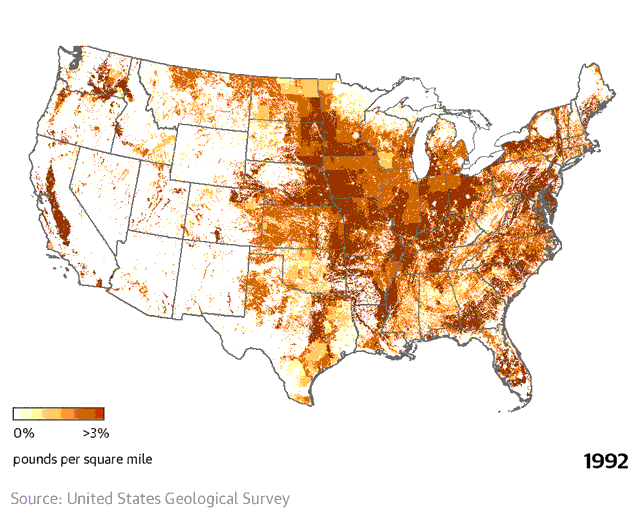
This week, an unlikely candidate was hired by the EPA to oversee Pesticide and Chemical Regulation. Kyle Kunkler has been in the pesticide industry for several years, most recently serving as a pro-pesticide lobbyist for soybean interests.
His appointment goes directly against MAHA and the promises made by Trump and RFK to Make America Healthy Again. The role’s predecessor, Edward Messina, had successfully rolled back or made progress on pesticide reliance. The appointment of Kunkler to the position means that progress made on several fronts will likely be lost. One notable campaign that may now be tabled or even reversed is the effort to regulate paraquat—a pesticide scientifically linked to Parkinson’s disease since it came on the market in the 1950s.
| Paraquat is one of many highly toxic pesticides used in American agriculture and ongoing litigation seems to have no end in sight. Sadly, the victims of high paraquat exposure have Parkinson’s, and so many plaintiffs are dying before seeing the end of legal proceedings. The connection between paraquat and Parkinson’s is strong and has been proven over decades of research. According to “The Lege” (a publication backed by EWG): “Internal records show that in 1958, an ICI (Imperial Chemical Industry, the manufacturer at the time) researcher reported to a colleague that company tests on laboratory animals found exposure to a chemical compound related to paraquat appeared to affect the central nervous system.A 1964 ICI study on rabbits noted dermal exposure to paraquat caused ‘weakness and incoordination’ in some of the animals. In 1966, ICI scientists studying paraquat exposure effects on a variety of animals noted that ‘large doses’ given to rats and mice showed effects on the central nervous system, with some animals displaying a stiff gait or tremors.” |
| Paraquat is a heavily used pesticide in the U.S. and in many developing nations. However, most other industrialized countries have banned it. It is prohibited in Europe and many other first- and second-world nations. The United States, China, and India still license it for commercial use only, though in some smaller countries, it remains widely accessible. Paraquat is one of the most heavily used herbicides, alongside glyphosate, which receives significantly more public attention. Glyphosate is the key ingredient in Roundup, and lawsuits against its manufacturer, Monsanto, are widely known. As early as the 1950s, studies showed that paraquat could deteriorate brain tissue. The distribution of paraquat has changed hands many times; during the 1980s, it was distributed by Chevron. Despite a long list of studies connecting paraquat to brain damage before the 1990s, use of the herbicide in the U.S. tripled between 1992 and 2018. A small amount of ingested paraquat is fatal, and by the 1960s, it had become a common tool for suicide. It remains the suicide method of choice in some smaller developing nations such as Samoa and Trinidad and Tobago.In this short series, we will explore how this chemical is linked to the exponential increase of Parkinson’s in the general public, the ongoing legal battles involving victims who often die before seeing a resolution, and if MAHA will actually begin to regulate chemicals like paraquat, or let it slide backwards. |


